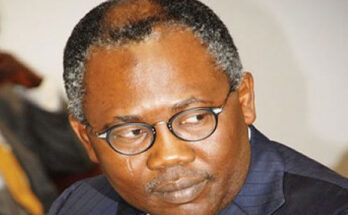Labour and its Civil Society Allies have tasked Nigeria and other African governments to as a matter of urgency implement the African Union (AU) report on Illicit Financial Flows from the continent.
The group, at a two –day capacity building /sensitisation training on tax justice/halting illicit financial flow for trade unions and CSOs in Abuja, unanimously called for workers, women and youths involvement in the campaign for the creation and sustainability of a progressive tax base.
In his presentation at the event, Nigeria Labour Congress focal person on Illicit Financial Flows/tax justice, Comrade James Eustace said a sustainable and progressive tax base in Nigeria would ensure a sure and steady way for domestic mobilisation of resources.
James said: “This will include mass creation of jobs that will provide the opportunity for the expansion of the tax base. By this, our government can set the agenda for improving public services delivery and sustainable development.
“Besides, this is a core issue of sovereignty and self-determination. Progressive tax justice policies mean African countries can be financially self-sufficient and free from aid dependency.
“Nigerian and African governments must commit to ensuring companies doing business pay their fair share of tax on the economic activities that take place within our jurisdiction.
Whether companies are extracting minerals, setting up factories, or selling goods or services, we will deprive our people of their basic needs and human rights if we do not ensure corporations pay their fair amount of taxes.
“This also means addressing race-to-the-bottom tax incentives and tax competition policies on a regional basis. Governments and other leaders must strictly limit the use of discretionary incentives and provide transparent explanations and parliamentary reviews of tax incentives when they are used.
Nigerian government and other African governments undertake national and regional coordination to reduce harmful tax competition across borders.”
Continuing, the focal person said: “Importantly, the Nigerian government must resist the temptations and advice to undertake tax policies that will pass tax payment burdens on the poor.
For instance, essential items such as food and medicines should not be taxed. Rather, we will encourage the taxing of luxury goods, as well as suggest that government consider higher taxes on harmful goods such as cigarettes.
“We urge the Nigerian government to continue to pursue asset recovery as loot by public and private officials and not accept regressive advice such as national assets sale.
To this end, we shall be calling on the Nigerian government to investigate and prosecute Nigerians found wanting.”
Also in his presentation, Mr Celestine Odo of ActionAid linked the retrogressive taxation system, poor budgeting, poor management of resources and others to inequality in Nigeria.
Quoting Oxfam’s report of 2015, Mr Odo said: “Despite a rapidly growing economy, Nigeria is one of the few countries where the number of people living in poverty increased, from 69 million in 2004 to 112 million in 2010 – a rise of 69 percent.
“The number of millionaires increased by 44 percent during the same period. More than 112 million people are living in poverty in Nigeria, yet the country’s richest man would have to spend $1 million a day for 42 years to exhaust his fortune.
Nigeria, one of the most unequal country globally, 152/152 in the Oxfam global inequality index report 2017
“The wealth of five richest men in Nigeria in 2017 ($29.9 billion) could end extreme poverty in the country yet 5 million face hunger, Since 2015, the richest 1% has owned more wealth than the rest of the planet, Eight men now own the same amount of wealth as the poorest half of the world”.




